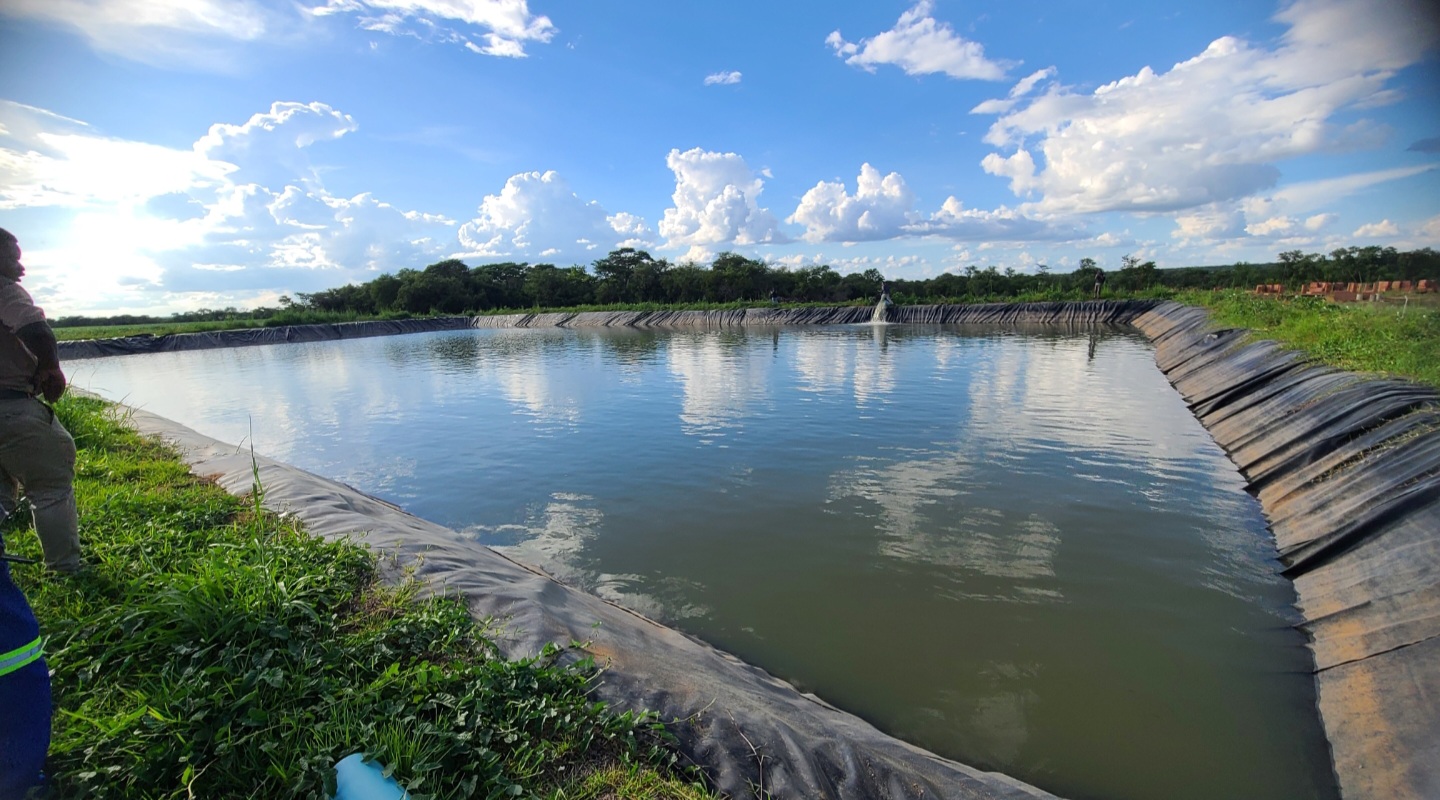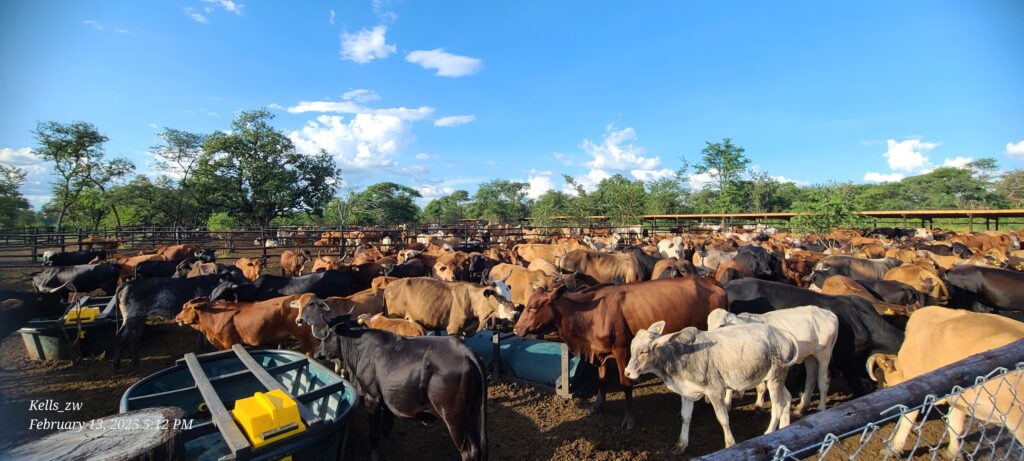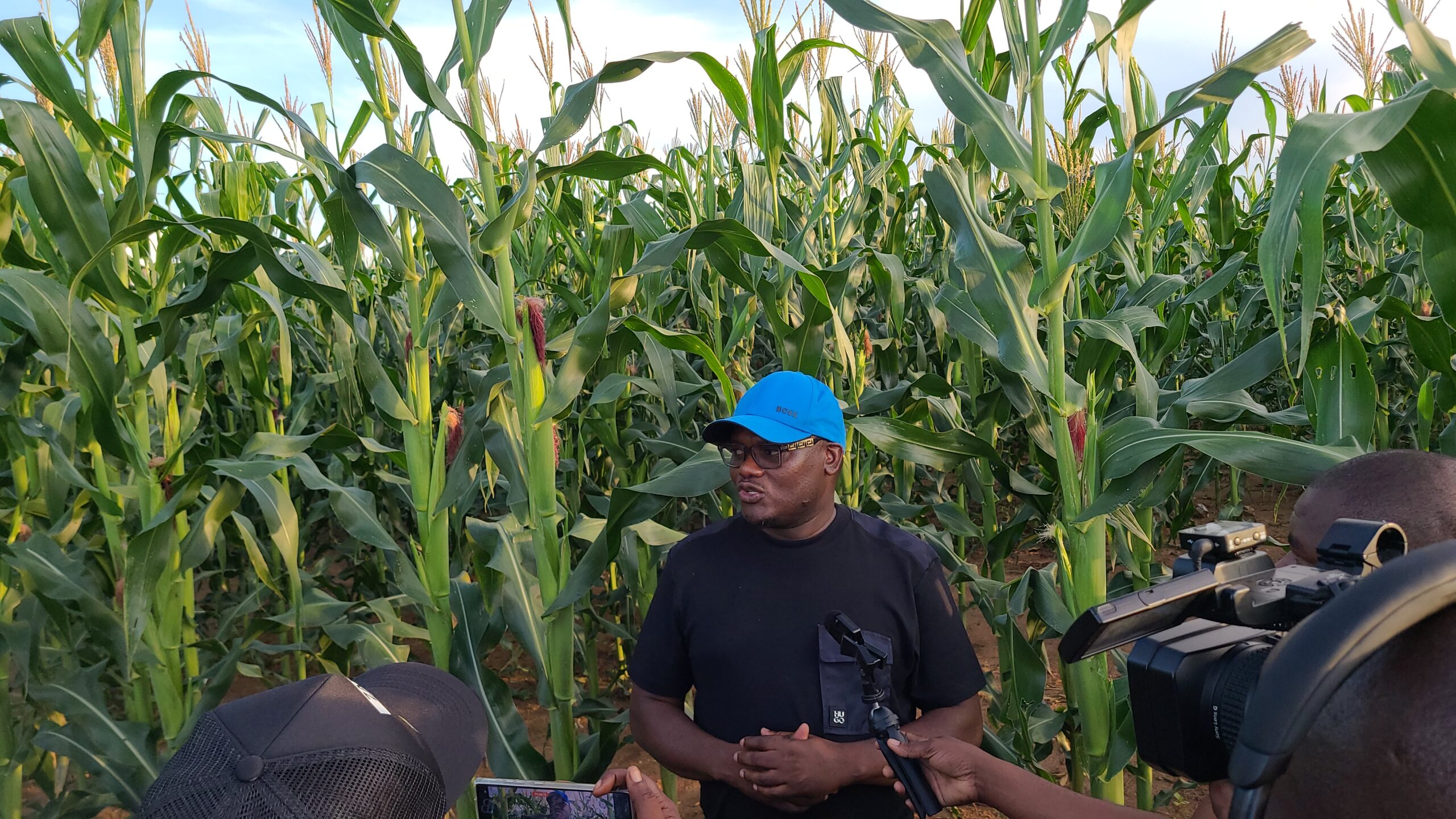Chegutu, Zimbabwe | Presidential Advisor Paul Tungwarara’s farm has become a model for integrated agricultural production, excelling in maize cultivation, fish farming, poultry rearing, and animal husbandry.
Located in the heart of Chegutu, the farm is not only boosting local food security but also setting a standard for modern, eco-friendly farming practices.
Utilizing advanced irrigation techniques and climate-resilient seed varieties, the farm is proving to be a beacon of model agriculture.
“When I went to President Emmerson Mnangagwa’s farm at Precabe, I was motivated and I told myself that I should copy and paste what he was doing at his farm. It is what motivated me,” Tungwarara said.
Tungwarara’s team has also adopted conservation agriculture methods, such as minimal tillage and crop rotation, to maintain soil fertility and reduce environmental impact.
“Our goal is to ensure that maize production is not only sustainable but also capable of meeting the needs of our communities,” Tungwarara said during a tour of the farm.
The surplus maize is sold locally at GMB, providing affordable food options and supporting the livelihoods of nearby farmers.
“Our main crop is maize. We have already acquired machines to process oil and the by-products would be used for cattle and pig feeds,” he said.
The farm’s fish ponds are a testament to the potential of aquaculture in addressing protein deficiencies.

Tilapia is the primary fish type and is reared, growing in well-maintained ponds that use recirculating water systems to minimize waste.
This approach ensures efficient resource use while producing high-quality fish for local markets.
Tungwarara emphasized the importance of fish farming in combating malnutrition, particularly in rural areas.
“Fish is a rich source of protein and essential nutrients. By promoting aquaculture, we are not only creating jobs but also improving the health of our people,” he said.
The poultry section of the farm is a hive of activity with hundreds of free range chickens raised for both meat and egg production.
The farm employs modern housing systems that ensure the birds’ welfare while maximizing productivity.
The farm’s animal husbandry operations include cattle and goats, all reared with a focus on sustainable practices.

Livestock are fed on a diet of farm-grown fodder and crop residues, reducing the need for external feed sources.
The 800 plus cattle herd, primarily composed of several breeds, is bred for both meat and dairy production.
Tungwarara’s farm is more than just a commercial enterprise; it is a hub of innovation and community development.
By integrating maize production, fish farming, poultry rearing, and animal husbandry, the farm demonstrates how diverse agricultural activities can coexist harmoniously, benefiting both the environment and the economy.

For comments, Feedback and Opinions do get in touch with our editor on WhatsApp: +44 7949 297606.
